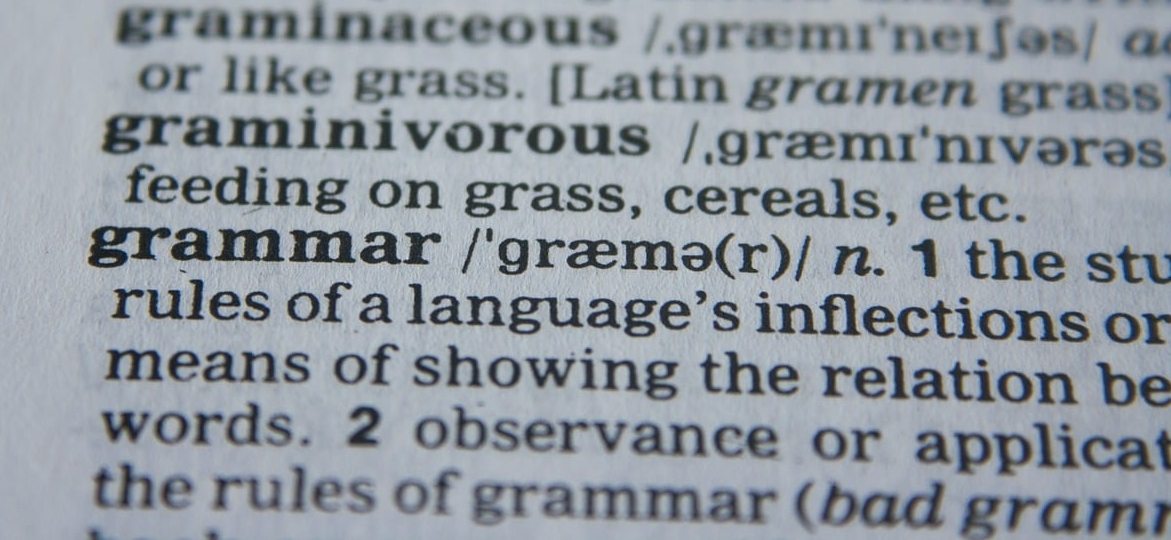In this article, we talk about all things French conjugation! Whether its verb groups, verb endings, auxiliaries or imperatives, you can find it here. Read on for:
- How to conjugate a verb
- Verb groups
- Using auxiliary verbs for French conjugation
- The imperative
- Tip for French conjugation
- How to learn French online with our General Français course!
Even the word “conjugation” can sound a little scary, but with this handy guide you’ll be a whizz in no time! If you wish to take the tests DELF, DALF or TCF revising all our french grammar and conjugation worksheets is always a great idea!

How to conjugate a verb
In French, verbs must be conjugated. This means that you must modify the form of the verb according to the subject of the verb: I; you (singular); he/she/it; we; you (they); or they.
We’ve set out the common verb manger (“to eat”) in the table below as an example:
| Manger | |
|---|---|
| je | mange |
| tu | manges |
| il, elle | mange |
| nous | mangeons |
| vous | mangez |
| ils, elles | mangent |
Remember that vous can refer to the second person plural or the polite form for addressing one person. In both cases, you must conjugate the verb according to the vous form.
Regular verbs
Conjugation can be tricky, but luckily there are groups that follow the same pattern.
The first group contains verbs ending in -er such as manger, changer (“to change”), and aimer (“to like/love”). These verbs take the following endings in the present: -e; -es; -e; -ons; -ez; -ent.
The second group contains verbs ending with -ir, such as applaudir (“to applaud”) and choisir (“to choose”). For these verbs, the endings in the present are: -is; -is; -it; -issons; -issez; -issent.
The third group contains verbs ending with -ir, -dre, -aître and -oître, such as venir (“to come”), répondre (“to reply”), connaître (“to know”), and disparaître (“to disappear”). For these verbs, the most common endings in the present are: -s; -s; -t/-d; -ons; -ez; -ent.
Example verb conjugations
Let’s take a look at some verbs in context. In the following tables, we’ve conjugated three common verbs in the simple tenses: the present; the imperfect; the future; the conditional; and the subjunctive.
| Present | Imperfect | Future | Condtional | Subjunctive | |
|---|---|---|---|---|---|
| j' | aime | aimais | aimerai | aimerais | aime |
| tu | aimes | aimais | aimeras | aimerais | aimes |
| il, elle | aime | aimait | aimera | aimerait | aime |
| nous | aimons | aimions | aimerons | aimerions | aimions |
| vous | aimez | aimez | aimerez | aimeriez | aimiez |
| ils, elles | aiment | aimaient | aimeront | aimeraient | aiment |
French conjugation for finir (“to finish”)
| Present | Imperfect | Future | Conditional | Subjunctive | |
|---|---|---|---|---|---|
| je | finis | finissais | finirai | finirais | finisse |
| tu | finis | finissais | finiras | finirais | finisses |
| il, elle | finit | finissait | finira | finirait | finisse |
| nous | finissons | finissions | finirons | finirions | finissions |
| vous | finissez | finissiez | finirez | finiriez | finissiez |
| ils, elles | finissent | finissaient | finiront | finiraient | finissent |
French conjugation for prendre (“to take”)
| Present | Imperfect | Future | Conditional | Subjunctive | |
|---|---|---|---|---|---|
| je | prends | prenais | prendrai | prendrais | finisse |
| tu | prends | prenais | prendras | prendrais | finisses |
| il, elle | prend | prenait | prendra | prendrait | finisse |
| nous | prenons | prenions | prendrons | prendrions | finissions |
| vous | prenez | preniez | prendrez | prendriez | finissiez |
| ils, elles | prennent | prenaient | prendront | prendraient | finissent |
Conjugating verbs with auxiliaries
Got all that? Let’s move on to something a little trickier.
In certain tenses, verbs are conjugated using one of two auxiliary verbs: avoir (“to have”) or être (“to be”). This means that you must conjugate the auxiliary verb according to the subject before adding the past participle of the verb in question.
In the following tables, we’ve conjugated two common verbs in the following tenses: the passé composé; the plus-que-parfait; the futur antérieur; the past conditional; and the past subjunctive.
French conjugation for marcher (“to walk”)
| Present perfect | Past perfect | Future perfect | Past conditional | Past subjunctive | |
|---|---|---|---|---|---|
| je | ai marché | avais marché | aurai marché | aurais marché | aie marché |
| tu | as marché | avais marché | auras marché | aurais marché | aies marché |
| il, elle | a marché | avait marché | aura marché | aurait marché | aie marché |
| nous | avons marché | avions marché | aurons marché | aurions marché | ayons marché |
| vous | avez marché | aviez marché | aurez marché | auriez marché | ayez marché |
| ils, elles | ont marché | avaient marché | auront marché | auraient marché | aient marché |
French conjugation for aller (“to go”)
| Present perfect | Past perfect | Future perfect | Past conditional | Past subjunctive | |
|---|---|---|---|---|---|
| je | suis allé | étais allé | serai allé | serais allé | sois allé |
| tu | es allé | étais allé | seras allé | serais allé | sois allé |
| il, elle | est allé/allée | était allé/allée | sera allé/allée | serait allé/allée | soit allé/allée |
| nous | sommes allés | étions allés | serons allés | serions allés | soyons allés |
| vous | êtes allés | étiez allés | serez allés | seriez allés | soyez allés |
| ils, elles | sont allés/allées | étaient allés/allées | seront allés/allées | seraient allés/allées | soient allés/allées |
French conjugation and the imperative
In the imperative mood, verbs are only conjugated across three persons: the first person singular; the first person plural; and the second person plural. The most common tense is the present, although there is also a past imperative.
The imperative is a special French conjugation: verbs can be used without their subject pronoun and the -er verbs lose their final s in the second person singular.
Check out the imperative conjugation of marcher here:
| Present imperative | |
|---|---|
| je | |
| tu | marche ! |
| il, elle | |
| nous | marchons ! |
| vous | marchez ! |
| ils, elles |
Tips for tackling French conjugation
As you might have noticed, French conjugation has many rules and variations, but we have a few tips to help you ease yourself in:
- Make a list of the French verbs you use most commonly and sort them by conjugation group
- Learn a modal verb pattern for each conjugation
- Try reciting the conjugations over and over
- Learn être and avoir by heart
Learning French conjugation with GlobalExam
There’s a lot to learn here, so what better way to commit the French conjugation to memory than with exercises designed to do just that? Head to GlobalExam for detailed grammar sheets and exercises to help you progress in French!
Take some time to read more articles about French grammar and conjugation to improve your French level. We have written articles on topics such as French adjectives, pronouns, adverbs, gerund and all you need to know about verbs and tenses.
Here with the list of French grammar worksheets:
- French grammar – French adjectives: definition, forms, and rules
- List of relative pronouns in French: learning when to use them
- What is an adverb In French? Types and examples of phrases
- Learning French Grammar – French Passive To Active Voice
- Understanding Gerund In French: Structure and Examples
- List of French Grammar and Conjugation Worksheets
More articles on French conjugation:
- Conditional Tense In French: Understanding The Structure
- French Future Tense: How Does The Conjugation Work?
- Past Participle Tense In French: Regular And Irregular Verbs
- What Is The Imperfect Tense In French? Structure And Examples
- French present Tense: How Does The Conjugation Work?
- Subjunctive In French:Practice The Conjugation And Phrases
- What Are The Reflexive Verbs in French? Worksheets And Exercises
And if you’re looking for the best grammar book to suit your level, you can rest assured that there are all kinds!



